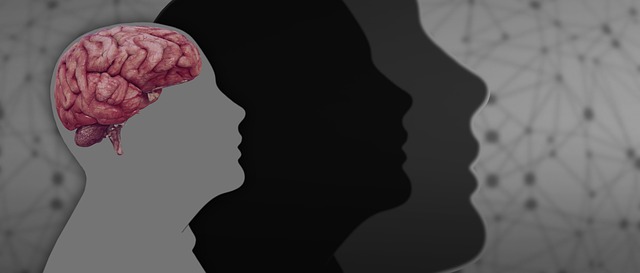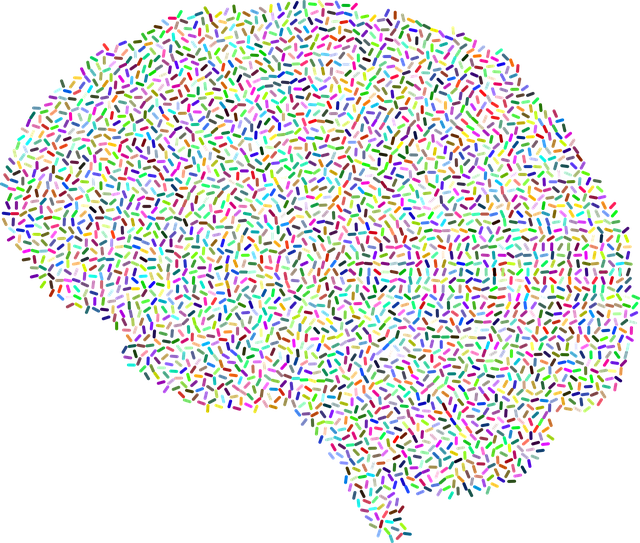Stress management is a key component of Aurora Autism Spectrum Disorder (ASD) therapy due to individuals' heightened sensitivity to everyday triggers. Effective ASD therapy involves personalized strategies, such as visual aids and structured communication, to navigate crises and build resilience. Evidence-based therapies like Aurora ASD Therapy offer tailored interventions using CBT, mindfulness, and sensory integration techniques to reduce anxiety and improve emotional well-being. Building community support networks further enhances stress reduction for individuals with ASD through conflict resolution skills and holistic approaches.
Stress reduction is a vital aspect of enhancing the well-being of individuals with Aurora Autism Spectrum Disorder (ASD). This comprehensive guide explores effective strategies to manage stress, tailored to the unique needs of ASD individuals. We delve into understanding the specific triggers and sources of stress, offering evidence-based therapies and techniques. Sensory integration and environmental modifications are key components discussed, along with building resilience and coping strategies for holistic support. Discover how these methods can revolutionize stress management in the context of ASD therapy.
- Understanding Stress in Individuals with Aurora Autism Spectrum Disorder (ASD)
- Common Triggers and Sources of Stress for ASD Individuals
- Evidence-Based Therapies and Techniques for Stress Reduction
- The Role of Sensory Integration and Environmental Modifications
- Building Resilience and Coping Strategies: A Holistic Approach
Understanding Stress in Individuals with Aurora Autism Spectrum Disorder (ASD)

Stress is a unique challenge for individuals with Aurora Autism Spectrum Disorder (ASD), presenting in various forms and intensities. Unlike neurotypical individuals, those on the autism spectrum often process emotions differently, which can lead to heightened stress responses to seemingly minor triggers. For example, rigid routines or unexpected changes can be particularly stressful, causing anxiety or even sensory overload. Understanding these nuances is vital for implementing effective Aurora Autism Spectrum Disorder therapy.
Emotional healing processes for individuals with ASD require tailored approaches that address both the disorder’s core characteristics and their unique stress factors. Burnout prevention strategies for healthcare providers working with this population must incorporate self-awareness exercises to recognize and manage their own stress, as well as develop empathy for the emotional experiences of their clients. By fostering self-awareness and implementing supportive therapy techniques, individuals with ASD can learn effective coping mechanisms to navigate stressful situations, leading to improved overall well-being.
Common Triggers and Sources of Stress for ASD Individuals

Individuals on the Autism Spectrum (ASD) often experience stress uniquely, with common triggers ranging from social interactions to changes in routine. Sensory sensitivities play a significant role; loud noises, bright lights, or certain textures can trigger overwhelming responses. Additionally, the predictability and structure that individuals with ASD thrive on can be disrupted by unforeseen events, leading to anxiety.
Emotional Intelligence (EI) is a valuable tool in managing these stressors. Recognizing and understanding emotions, both one’s own and others’, can help in identifying triggers and implementing effective coping mechanisms. Crisis Intervention Guidance and Conflict Resolution Techniques can also be tailored to support ASD individuals. For instance, visual aids or structured communication methods can help during conflicts, ensuring everyone involved feels heard and respected. Aurora Autism Spectrum Disorder Therapy emphasizes these personalized strategies to empower individuals with ASD to navigate stressors successfully.
Evidence-Based Therapies and Techniques for Stress Reduction

Evidence-based therapies and techniques play a pivotal role in stress reduction, offering effective strategies to manage and overcome overwhelming stress levels. One such approach gaining recognition is Aurora Autism Spectrum Disorder (ASD) Therapy, which focuses on enhancing emotional well-being through tailored interventions. This therapy leverages research-backed methods to address the unique challenges faced by individuals with ASD, promoting better coping mechanisms and overall mental health.
Additionally, incorporating Stress Management Workshops Organization techniques can significantly aid in personal growth. These workshops often teach valuable conflict resolution skills, mindfulness practices, and cognitive behavioral therapies (CBT). By participating in such initiatives, individuals learn to identify and change negative thought patterns, effectively manage stress triggers, and prevent depression. Such proactive measures not only foster self-care but also contribute to a holistic approach towards well-being, catering to diverse needs beyond autism spectrum disorder.
The Role of Sensory Integration and Environmental Modifications

Sensory integration plays a pivotal role in stress reduction, especially for individuals with Aurora Autism Spectrum Disorder (ASD). This involves creating a balanced and regulated sensory environment that supports their overall well-being. By modifying their surroundings, such as reducing noise levels, incorporating soft lighting, and providing tactile comfort through specialized fabrics or fidget tools, these individuals can experience significant anxiety relief and improvements in emotional well-being promotion techniques. Environmental adjustments tailored to their unique sensory needs can foster a sense of calm and reduce stress responses, ultimately enhancing their ability to engage in self-care routine development for better mental health.
Building Resilience and Coping Strategies: A Holistic Approach

Building resilience and coping strategies are essential aspects of holistic stress reduction, especially for individuals navigating challenges like Aurora Autism Spectrum Disorder (ASD). Therapy plays a pivotal role in fostering adaptability and providing effective tools to manage stress. Through structured interventions, individuals learn to identify triggers, develop personalized coping mechanisms, and enhance their problem-solving abilities. This process equips them with the strength to face life’s demands and navigate unpredictable situations with greater ease.
Resilience-building techniques often incorporate conflict resolution skills, enabling people to address interpersonal challenges constructively. By mastering these skills, individuals can foster healthier relationships, improve communication, and reduce the stress associated with unresolved conflicts. Additionally, community outreach program implementations have proven beneficial in creating support networks, offering peer connections, and sharing valuable resources. These collaborative efforts enhance an individual’s sense of belonging and provide a safety net during stressful periods, fostering overall well-being.
In conclusion, effectively managing stress in individuals with Aurora Autism Spectrum Disorder (ASD) involves a multi-faceted approach. By understanding unique triggers and employing evidence-based therapies like sensory integration and holistic coping strategies, we can significantly enhance the quality of life for ASD individuals. Implementing these techniques, coupled with environmental modifications, empowers those with ASD to build resilience, navigate their daily challenges, and thrive in various settings. This comprehensive strategy ensures that Aurora ASD therapy goes beyond symptom management, fostering a more balanced and fulfilling life for each individual.














